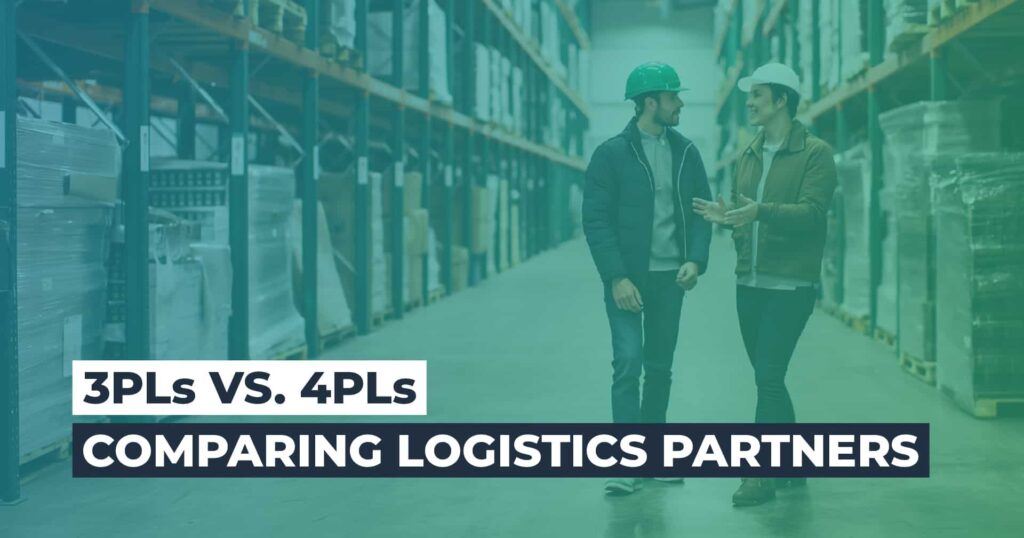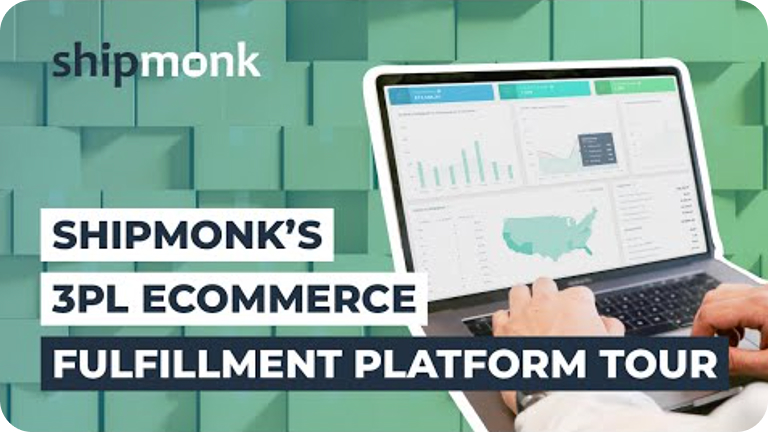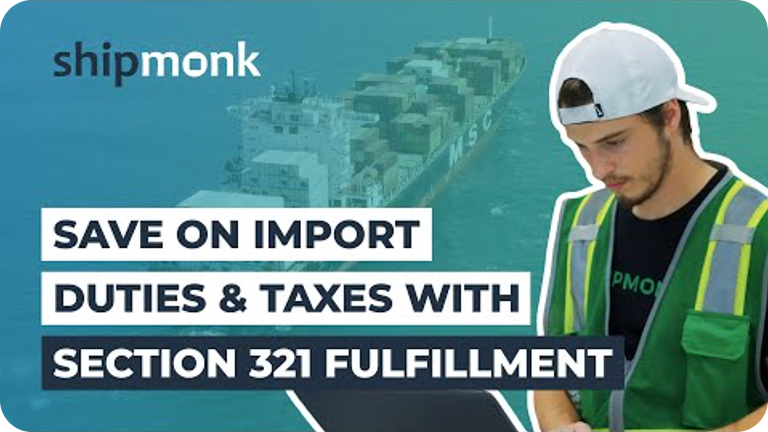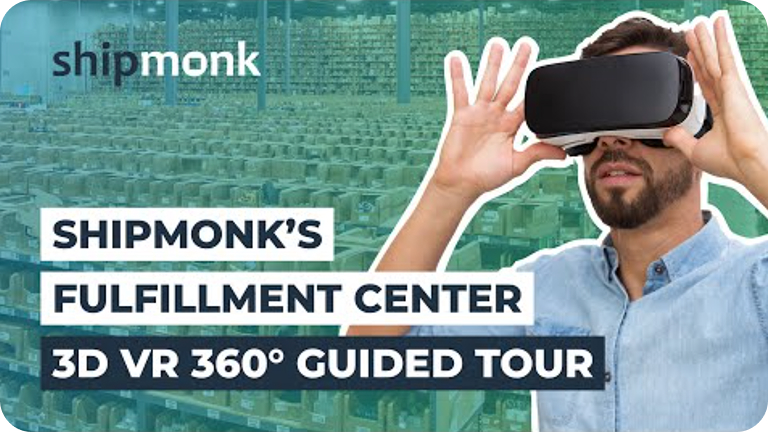Why should your ecommerce brand choose a modern, global 3PL like ShipMonk instead of other kinds of 3PLs and the 4PL? At a glance, our tech-enabled type of 3PL (third party logistics provider) has award-winning customer service, cutting-edge automation, guaranteed SLAs, and 12 facilities worldwide that we fully own and operate. But there are also traditional 3PLs, regional 3PLs, and 4PL providers out there. So how do you know which is your ideal solution? Let’s compare these logistics partners and analyze the pros and cons for your ecommerce brand.
Modern, Global 3PLs (ShipMonk)
3PLs like ShipMonk help brands “stress less and grow more” through a comprehensive suite of fulfillment and logistics solutions built around technology, accuracy, and efficiency. We have a dozen warehouse/fulfillment centers across the globe that minimize shipping zones and border issues. The results are reduced costs and faster delivery times for your brand, which increase customer satisfaction in addition to protecting your margins.
With a 3PL like ours, you also get so much more than basic warehouse space. These geographically and tech optimized facilities are fully-integrated order fulfillment centers. Here, products are expertly picked, packed, and shipped by experienced 3PL professionals with the assistance of cutting-edge automation that speeds up the process while not sacrificing accuracy.
Another perk of working with a fine-tuned 3PL fulfillment operation, like ShipMonk, is knowing that your inventory is secure. Since we fully own and operate our facilities, your goods are always housed in a secure location and are handled with care by our private dedicated professionals. Our facilities have on-the-ground management and fulfillment experts to take care of your needs should any questions or concerns arise. Additionally, as part of our customer-centric approach, our specially trained Happiness Engineers ensure a high level of client experience across all fronts and rapid SLA response times, every time.
This level of customer satisfaction is paramount in every aspect of our 3PL, and is the foundation of our user-friendly platform. Our advanced software provides detailed historical and real-time data, granting you full visibility and control over your fulfillment operation. That’s not just in regards to your supply chain; we proudly have transparent billing and pricing models, so you always know what your brand is getting for its budget.
With the added benefit of being able to customize solutions to meet your unique business requirements, it’s no wonder that ShipMonk stands out in the 3PL realm as a trusted strategic partner for seamless growth and operational excellence. Now let’s compare those benefits to the pros and cons of other logistics partners.
Traditional 3PLs
Today’s ecommerce brands need logistics partners with flexibility, technology, and the ability to execute quickly. Traditional 3PLs offer scale and experience but, unlike tech-enabled 3PLs such as ShipMonk, they are typically designed for single-site operations. The rigidity of their processes and lack of advanced technology make them less ideal to support the complex requirements of an ecommerce business or sustain rapid growth.
In terms of your access, Traditional 3PLs also have a transparency problem. This kind of 3PL does not provide you with the robust data (fulfillment, inventory, billing, etc.) that a 3PL like ShipMonk does. Without that data, you don’t have the tools needed to make the most strategic decisions. And less fulfillment visibility due to missing tech layers means less understanding of the details of your operation.
That lack of transparency can extend to other areas of your partnership with a Traditional 3PL, like billing and invoices. Traditional 3PLs leverage standardized cost and operational models and they are rarely adaptable to a merchant’s specific needs.
Overall, this type of 3PL is a less adaptive partner. You won’t have the option to easily adjust shipping formats if need arises, more manual processes mean roadblocks to scaling, there are less value-added services, and you have fewer types of storage available (for example, temperature-controlled storage). If these areas matter to you, a Traditional 3PL is not for you. What you need is a modern 3PL like ShipMonk.
In sum, the key takeaways for a traditional 3PL are:
- Pros
- Lower Costs on Average
- Dedicated Customer Service
- Many Years of Experience
- Cons
- Limited Technology
- Lack of Flexibility
- Minimal Customization
- Less Data and Transparency
Regional 3PLs
Regional 3PLs often try to entice businesses with major discounts, so if that’s a priority when picking a logistics partner you could be very satisfied. Add to that, because regional 3PLs have a smaller geographic footprint and fewer clients than an international or national logistics partner, they may provide high levels of customization and support. On the downside, a partnership with a regional 3PL means it is harder for ecommerce brands to grow and scale. Why? Your brand may be pigeonholed by a smaller warehouse footprint, lack of consistency and order accuracy, receiving issues, and a lack of reporting or visibility, which negatively impacts customer service.
A regional 3PL’s limited network/facilities also means you have fewer options to split your inventory with the intention of bringing products closer to customers. That means your brand will incur higher shipping costs and longer delivery times. Those are issues you would not deal with if you did business with a modern, global 3PL like ShipMonk that has 12 privately owned and operated locations worldwide, plus advanced transportation management and shipping capabilities.
In sum, the key takeaways for a regional 3PL are:
- Pros
- Possible Signup Discounts
- Competitive Pricing
- Extensive Customization
- High-Touch Support
- Cons
- Limited Options to Scale
- Lack of Geographical Coverage
- Higher Shipping Costs
- Longer Delivery Times
- Fulfillment Issues from Accuracy to Receiving
4PL Providers
4PLs offer their clients technology and the ability to scale with a wide-spread network. However, unlike a 3PL such as ShipMonk, they do not have full ownership and control of the fulfillment process, or your inventory. As a result, 4PLs don’t have the same quality control standards in their facilities. They are also not as reliable because they are 100% dependent on 3rd party warehousing, and that puts brands and their customers at risk if something happens to their assigned 3PL.
That can be off-putting to brands, and rightfully so. Add to that, 4PLs serve as general admin and management for all your supply chain relationships. That removes you from hands-on access/control of your operation.
“Removal” is also the right way to describe the client service element of a 4PL. Contrary to a 3PL like ShipMonk with award-winning customer support and dedicated experts called Happiness Engineers, 4PL customer support is not as direct or easy. 4PL customer support isn’t typically US-based or directly within warehouses, making issue resolution more challenging and time-consuming. If you factor in higher account management turnover rates, lack of transparency with pricing, less accountability for problems in the warehouse (damaged inventory, packaging costs, order cutoff times, etc.), a 4PL is not the best choice for you.
In sum, the key takeaways for a 4PL provider are:
- Pros
- Technology-Centric
- Huge Geographical Reach
- Offers the Ability to Scale Quickly
- Competitive Pricing and Shipping Rates
- Cons
- Limited Control Over Warehouse Operations
- Poor Customer Support and Issue Resolution
- Less Transparency and Communication
- Limited Access/Admin Over Your Operations
- Indirect (Overseas/Non-Local) Customer Service
- Lack of Accountability and Stability
Logistics Partners at a Glance
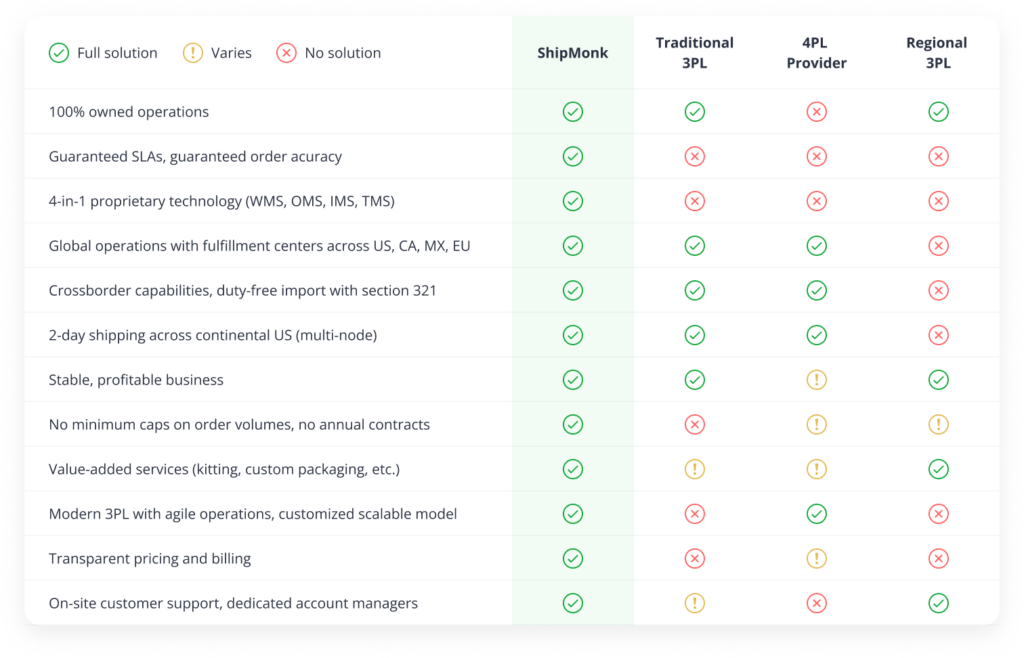
Choosing Your Logistics Partner
Technology, efficiency, accuracy, cost, customer service, customization, and opportunities to scale are some of the most important aspects that define a reliable and beneficial logistics partner. The problem for new businesses and growing, established brands is that there are so many types of logistics partners to pick from. We hope this article has helped concisely illustrate the pros and cons of traditional 3PLs, regional 3PLs, 4PL providers, and a modern, global 3PL like ShipMonk with technology and logistics expertise at its core.
If you’d like to learn more about how our kind of 3PL can benefit your business, contact our team by filling out our quote request form. We look forward to helping you grow your business.
